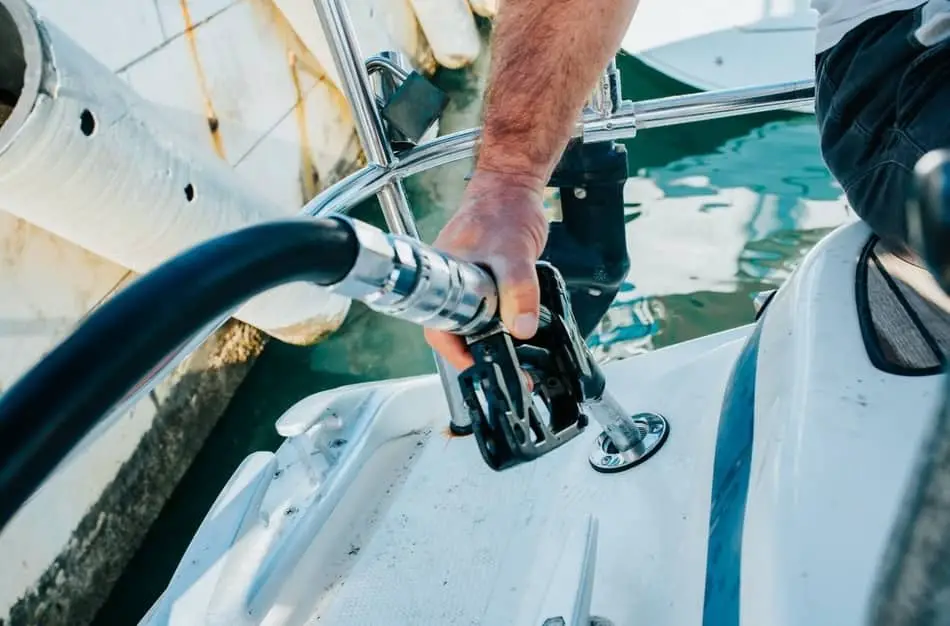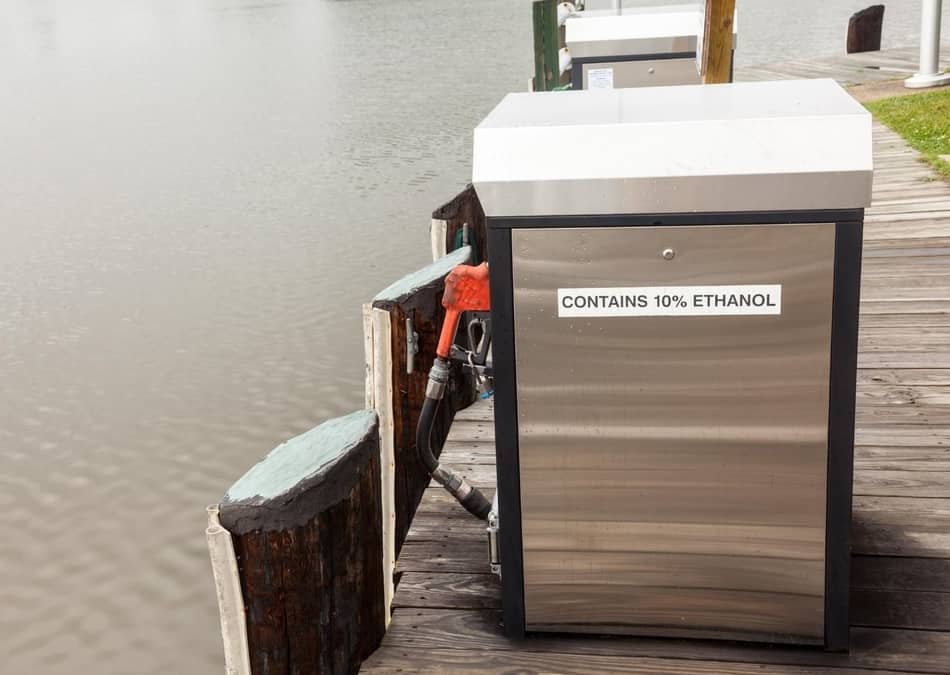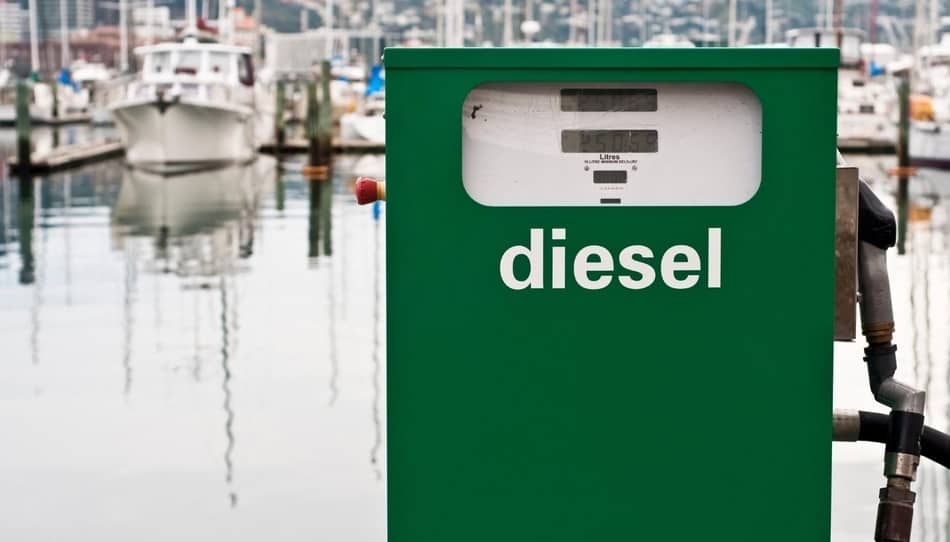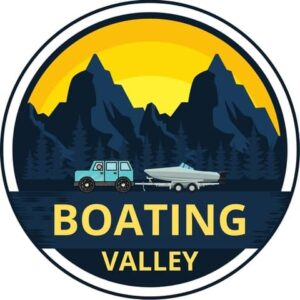There are many doubts or confusion with regard to boat fuels, and what types of fuels do boats use? Are they use the same fuel (gas and petrol) or any other different or unique fuels? Let’s find out what fuels do boats use in general and explore all of them quickly.
Boats use either gas (petrol) or diesel as a fuel, but not both. Generally, small boats will use ethanol-free gas (regular gas) or E10 gas (10% of ethanol in gas), and diesel is not common in small boats. And big boats will use diesel because they need more torque and diesel gives more (than gas).
It is almost the same as cars do “we can’t use diesel in a gas outboard or I/O motor.” But here we can use either E10 (10% ethanol in gas) or ethanol-free gas in a gas outboard motor with some adjustments to it. Mostly all the boats, yachts, and big ships will use either gas or diesel as fuel.
And some high-performance boats (larger commercial boats) use distilled fuel (Marine Gas Oil (MGO) and Marine Diesel Oil (MDO)), which is different from the regular gas or diesel fuels. Mostly, these are the primary fuel types used in boats, yachts, and big ships. But there is one more fuel that is E15% (we will get to that later in the post).
And generally, for small boats or personal boats, gasoline is the most common fuel because mostly small boats don’t require more torque (gas produces less torque compared to diesel). Less torque is enough to move a small boat (generally, boats less than 40 feet in length) in the water.
Whereas if the boat size increases, it requires diesel because big boats need more torque (diesel produces more torque compared to gas), so big boats will not use gas as fuel. Since diesel gives more torque, it is used as fuel in big boats (generally, boats more than 40 feet in length).
In the USA, gasoline is mostly used as fuel in small boats rather than diesel engines, and in the UK and European countries, diesel is most common in small boats than gas (petrol). Let’s see each of those fuel types, and its benefits and drawbacks as well.

Do boats run on gas (petrol)?
Boats run on gas (petrol), and generally, gas is used as fuel in small boats, not in big boats. And the boat can use either normal gas (ethanol-free gas or 0% ethanol in gas) or E10 gas (10% ethanol in gas) as fuel, but it needs to have a gas engine to use gas as fuel, not diesel one.
Gasoline is the most common fuel for small boats in the USA, and at many marinas, you can find either ethanol-free gas or E10. Let’s find out why ethanol is added to the gas.
Ethanol gas (E10 and E15)

Ethanol is added to gas because it completely burns the fuel and produces less emission compared to normal gas (ethanol-free gas) and diesel. So, a small percentile of ethanol (10% and 15%) is added to gas to reduce pollution, but 15% of ethanol in gas will produce more pollution, so 10% is common.
With that being said, there are generally two types of ethanol mixtures in the gas those are E10 (10% percent of ethanol in gas) and E15 (15% of ethanol in gas).
- E10 – 10% of ethanol is added to the gas.
- E15 – 15% of ethanol is added to the gas.
Okay, now you got to know the benefit of adding ethanol to the gas, but there is one major drawback of adding ethanol to the gas. Let’s see what is the drawback of adding ethanol to the gas.
The problem with adding ethanol to the gas is it creates water in the tank from the air, and if there is any water present in the tank, then it creates more. Eventually, that water in the tank corrodes the boat fuel lines and the fuel tank’s inner walls over time.
If the boat is left with some gas (E10) in the tank for a long time, it will form some thick solution at the bottom of the tank, damaging the motor. That’s the problem of adding ethanol to the gas. And if the ethanol percentage in the gas is increased, then it creates more problems.
E15 gas (15% of ethanol in gas) contains more ethanol percentage in the gas, which will create more problems than E10 and ethanol-free gas. So, the E15 gas is mostly not used in the boats, and it is banned in many states. E10 and ethanol-free gas are common in most of the boats than E15 gas.
But the significant advantage of the mixing ethanol in gas is that it decreases pollution (emits less compared to ethanol-free gas), but by mixing the gas with more ethanol (15% of ethanol or E15 gas), will create additional problems than ethanol-free gas.
So, mostly E15 is bad and not used in boats (E15 is banned in some places). And ethanol gas is good at low quantities, not at large quantities because if the fuel tank is big, it creates more water in the tank. So, it is good to fill the tank with the amount of fuel you need for the trip.
Benefits of using gas (petrol) in the boat
- The gas motor is less expensive than diesel motors.
- Gas motors produce less smoke compared to other fuels (diesel).
- They put out more power than an equivalent size diesel engine.
- Mixing ethanol with gasoline (E10 or 10% ethanol in gas) decreases smoke emission (pollution).
Drawbacks of using gas (petrol) in a boat
- Gas is more expensive than other fuels.
- Leaving ethanol gas in the tank for a long time will create water in the tank and can corrode the fuel lines and tank itself.
- Exhaust gases from gas engines contain carbon monoxide, which is deadly.
- Adding more ethanol to gasoline (E15 or 15% of ethanol in gas) produces more pollution.
- Gas motors produce less torque, and it’s not sufficient to run a big boat or ship, so gas motors are not used in big boats or ships.
Do boats run on diesel?

Boats run on diesel, and generally, diesel is used as fuel in big boats, not in small boats. Because big boats need more torque to move the boat in the water, and diesel produces more torque compared to gas. But it needs to have a diesel engine to use diesel as fuel, not gas one.
Diesel engines are built to withstand much higher combustion pressures and heat and are inherently stronger than similar-sized gasoline engines, but today gasoline ones are also subjected to a lot more stress than diesel engines in common use 15 or 20 years ago (source).
Since diesel creates more torque, so it is used in big boats; otherwise, they wouldn’t have used it. Gasoline will create less torque compared to diesel, and small boats don’t need more torque; less torque is sufficient, so gasoline is often used in small boats (in the USA).
Then you might think, why can’t we use the same fuel in small boats as it creates more power (torque). It’s because the diesel motor creates sound and smoke pollution, which will shatter your peaceful mind while boating. That is the main reason why most small boats will offer a few diesel engines.
But generally, while buying the boat, you can take a diesel one if you want. Other than that, diesel ones are great, and in many states, it will come at lower costs than gasoline. They have more life compared to gas ones because it gives extra lubrication to the motor (source).
And they are also a bit safer than gasoline motors because diesel is less combustible than gas and has less liable to explode. And on average, diesel fuel contains about 140,000 BTUs per gallon or 10 percent more energy than the same volume of gasoline.
In terms of weight, gasoline weighs about 6.1 pounds per gallon. At the same time, diesel weighs about 7.1 pounds per gallon. But both the gasoline and diesel engines use about 0.6 pounds of fuel per horsepower per hour. There is some benefit in fuel consumption and usage.
Benefits of using diesel in a boat
- Diesel engines are generally considered as more robust in a marine environment than other fuel engines.
- They have more life compared to gas ones because it gives extra lubrication to the motor.
- And they are also a bit safer than gasoline motors because diesel is less combustible than gas and has less liable to explode.
- And on average, diesel fuel contains about 140,000 BTUs per gallon or 10 percent more energy than the same volume of gasoline.
Drawbacks of using diesel in a boat
- They put out less power than an equivalent size gas (petrol) engine, and tend to be somewhat smokier than gas.
- Diesel engines are more expensive than gas engines.
- Diesel engines produce a lot of sound pollution that can shatter your peaceful mind while boating.
Do boat run on red diesel?
There is one more variant in diesel that is red diesel. It is the same a diesel, but the only difference is color. And it is mostly used for agricultural equipment and other off-road vehicles. Let’s find out whether we can use red diesel in the boats are not.
Boats can use red diesel, but it is banned from using red diesel in boats because red diesel can be used in only offroad vehicles, agriculture, and farming, etc., not in boats. However, some countries are allowing the use of red diesel in the boats.
Red diesel is mostly used in off-road vehicles, and many states are banning the use of red diesel in the boat (source). The significant difference is with the color, and tax is high for regular diesel. Red diesel is taxed less compared to regular diesel.
The benefits of using red diesel are the same as normal diesel.
Benefits of using red diesel in a boat
- Diesel engines are generally considered as more robust in a marine environment than other fuel engines.
- They have more life compared to gas ones because it gives extra lubrication to the motor.
- And they are also a bit safer than gasoline motors because diesel is less combustible than gas and has less liable to explode.
- And on average, diesel fuel contains about 140,000 BTUs per gallon or 10 percent more energy than the same volume of gasoline.
Drawbacks of using red diesel in a boat
- They put out less power than an equivalent size gas (petrol) engine, and tend to be somewhat smokier than gas.
- Diesel engines are more expensive than gas engines.
- Diesel engines produce a lot of sound pollution that can shatter your peaceful mind while boating.
Key takeaways
In general, all boats use two types of fuels, either gas or diesel. Most of the USA’s small boats will use gasoline as fuel, and diesel is mostly used in the UK and European countries.
If the boat has a gas engine, then it can use either ethanol-free gas or E10 (10% ethanol in gas), E15 can damage the boat, and it isn’t nice for the environment. So, E10 and ethanol-free gas are good for the boat than E15.
Diesel engines are common in big boats and ships because they require more torque to move the boat in the water, and the diesel provides more torque than gas. So ship or big boats will use diesel as a fuel rather than gasoline.
